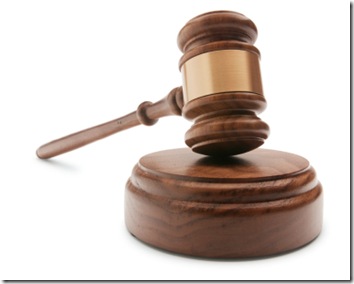
However, he vowed to bring contempt of court proceedings tomorrow against bar council members for violating an earlier Supreme Court judgment banning two-day strikes by lawyers.
The BCI had called on all lawyers in India to strike yesterday and today to protest the Ministry of Human Resource Development’s (HRD) decision to introduce the Bill, which the BCI argued would undermine its jurisdiction to regulate law colleges. [Download the Higher Education and Research Bill]
Awasthi said that after consulting with several senior colleagues, he had now decided to file contempt proceedings against individual members of the BCI and the Delhi state bar council, because both had made a nationwide call for a two-day strike by lawyers.
He said this violated the 1988 Supreme Court judgment in Ex. Capt Harish Uppal vs. Union of India & Anr and would try to file his petition tomorrow (12 July) if possible.
The Delhi high court yesterday heard Awasthi’s writ petition for mentioning, which requested a stay of the BCI’s strike, as reported by Legally India on Tuesday (10 July). He had asked the presiding judge, Justice Sanjay Kishan Kaul, to take suo moto action against the allegedly illegal strike.
But Awasthi explained that Kaul ultimately declined to take the petition on, reasoning that it was filed too late.
The 2010 Delhi University graduate told Legally India that he originally did not want to bring this petition against the strike himself. He said that he had been waiting for another lawyer to file an objection to the strike, which is why his writ petition was only filed the day before the strike. “No one else has come even now, so I have a duty to this. I am not worried about the result, but I must file contempt petition irrespective of the consequence,” he said.
“It is simply a matter of conscience.”
The BCI’s chairman was not reachable for comment by telephone. In 2011 Awasthi had filed a successful writ to force the BCI to disclose marks achieved in the All India Bar Exam (AIBE).
A case for contempt?
In the Supreme Court Capt Harish Uppal case the BCI had filed an affidavit setting out reasons for why lawyers had gone on strike in the past, listing “local issues”, “issues relating to one section of the bar and another section”, “issues involving dignity, integrity, independence of the bar and judiciary”, “legislation without consultation with the bar councils”, and “national issues and regional issues affecting the public at large / the insensitivity of all concerned”.
All those issues were within the exclusive domain of the courts or legislatures, held the Supreme Court bench in 2002 presided over by Justice D Raju, except for “issues involving dignity, integrity, independence of the bar and judiciary”. [Read full judgment]
Only those types of issues could be an exception to the general principle that lawyers could only pursue a remedy to grievances in law.
The court held:
We accept that in such cases a strong protest must be lodged. We remain of the view that strikes are illegal and that Courts must now take a very serious view of strikes and calls for boycott. However, as stated above, lawyers are part and parcel of the system of administration of justice.
A protest on an issue involving dignity, integrity and independence of the Bar and judiciary, provided it does not exceed one day, may be overlooked by Courts, who may turn a blind eye for that one day. […]
One last thing which must be mentioned is that the right of appearance in Courts is still within the control and jurisdiction of Courts. Section 30 of the Advocates Act has not been brought into force and rightly so. Control of conduct in Court can only be within the domain of Courts. Thus Article 145 of the Constitution of India gives to the Supreme Court and Section 34 of the Advocates Act gives to the High Court power to frame rules including rules regarding condition on which a person (including an Advocate) can practice in the Supreme Court and/or in the High Court and Courts subordinate thereto.
It is now hoped that with the above clarifications, there will be no strikes and/or calls for boycott. It is hoped that better sense will prevail and self restraint will be exercised.
Related documents:
threads most popular
thread most upvoted
comment newest
first oldest
first
threads most popular
thread most upvoted
comment newest
first oldest
first